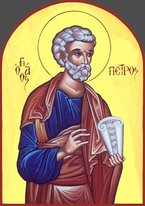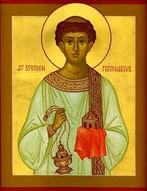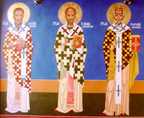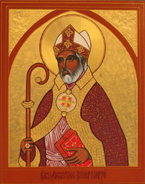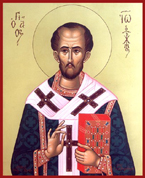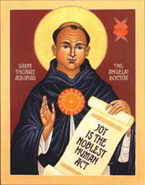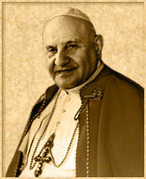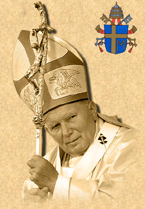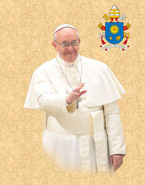I don't mean this to be a review of, but rather, a reflection on the series. For those who mean to be following this series soon, I promise there will be no spoilers for you in this reflection. And seeing as this is the month of January, the new year into which we have just stepped, this reflection would perhaps offer a good footing for us to begin our new year.
The most apparent declaration of Downton Abbey, in my estimation, is that life offers its ups and downs equally to both the upper classes and the lower classes of society. When it rains and pours, both the rich and the poor, the resigned and the aspiring, the revelling and the defeated, get wet. The series does not paint a rosy picture about life for the upper class British of the era. While the working class face issues of economic insufficiency, relationship situations, and personal brokenness, the aristocrats are not spared from the same realities in their own life dynamics. When catastrophe strikes, both classes of people cry the same tears. And to drive the point across in the television series, the war fought against the German Empire showed itself to be a great leveller for the then feudalistic British society. May we never be misguided by the delusion that wealth and social status are sure buffers from the trials of life. Many times, they are the very cause of struggles in one's life, and at other times, they prove to be nothing more than feeble antidotes to life's inevitabilities. In the course of my life as a minister, I have witnessed and often attempted to be a source of help for people from all walks of life suffering because of the dark clouds that pass through the same sky we all live under. I have been told more than once by some of the richest people I personally know that all the money they have in the world solves nothing of their predicaments. Rich or poor, we all have to struggle through life. I am convinced that this observation is necessary because we live in a society that we all hope would be equal but for now is not yet. In the face of this inequality, we are often looking yonder, peering over to the other side of the fence and wishing we were there to enjoy the blandness of a "problemless" life. The grass, as they say, is always greener on the other side. Well, it isn't. The poor have to suffer to sustain their lives economically, but the rich too struggle to sustain their mental and emotional wellbeing. In my observational experience, first-world problems aren't necessarily less excruciating than third-world ones. This brings me to a different but rather related matter, that is, the issue of dignity. Given that we live in an unequal society, even those of us who come from higher levels of society must uphold, even defend, the dignity of those perceived to be from lower classes of society. The Crawleys of Downton Abbey may be aristocrats and be often embroiled in the complications of their own upper-class lives, but it is shown all throughout the series that this has never been an impediment to their recognition of the dignity of their staff serving them. In defence of the dignity divinely accorded to each human person in society, Robert Crawley insisted, "We all have different parts to play, and we must all be allowed to play them". The insistence of the Crawleys to, at times, risk their own reputation for the wellbeing and benefit of their workers, inspires me to better acknowledge the place of the less noticeable people in society. Their preservation of staff employment as an exercise of continuous wealth distribution and social responsibility rather than industrial productivity is honourable, and this they did to the best of their ability for as long as their economic standing would permit. To rob a man of his role in the larger scheme of society, regardless of whether his role is perceived to be needed or not, is to be an obstruction to life's recognition of his intrinsic dignity. This is perhaps one of the most common maladies of modern capitalism in our contemporary world that breeds alienation and discordance to people who live under the mercy of the capitalists today. There is grief for the loss of self-worth for which no severance package, no matter how large or attractive, can make up. Of course, historians familiar with the feudal realities of 20th-century British society may rightly point out that I am moralising based on a romanticised version of what was an otherwise hideous feudalism, and they would be right. Still, if anything, Downton Abbey points out that the even when societal structure disfavours equality in status, it is the human heart that has the power to triumph in the perennial battle for a recognition of human dignity. Human civilisation is supposed to have overcome the social systems of caste discrimination and feudalism. While these are some victories of which history boasts, the human spirit continues to be tainted by the sin of discrimination and prejudice that no magnitude of societal restructuring can put right. This brings me to the final, and perhaps the greatest, point of my reflection. In all aspects of the lives portrayed in the interwoven stories of Downton Abbey, we must be reminded that every life - both rich and poor, employer and worker, old and young - needs mercy. The richer, although being the source of sustenance for the working class, do not despise them, and in many instances, relate vulnerably to the poorer ones and receive wisdom from them which changes their very lives. The poorer likewise do not exalt the rich as if they are gods, and they implicitly acknowledge that even the richer persons are in need of their aid, and often, their understanding and counsel. Everyone needs to receive mercy and to offer mercy. There is not one life that isn't broken and isn't in need of mercy. And there is not one life that is too broken to offer mercy, if only the individual intentionally chooses this path of mercy. I propose for myself and perhaps for you too, dear reader, that this be the theme of your life as you step into the new year: MERCY. We seek God for mercy and we seek others for mercy because we are acutely and painfully aware of our need of it. This need for mercy has nothing to do with our economic or social status, or positions that we occupy in our organisations of affiliation. We are human, weak and feeble, and we simply cannot make it on our own. A wealthy man cannot live solitarily in his palatial abode without the aid of other fellow human persons to care, to serve, to aid, and hopefully, to love him; fellow human persons who would otherwise not have their own means of sustenance. Mercy is a human transaction, a mutual exchange of the gift of the heart between two or more people. In the same way, we also offer mercy to others who need it from us. Mercy is offered in many ways, from a simple kindly wave to the man who sweeps the roads outside our luxurious residences to the welcoming of the unpleasantly smelling hungry stranger into our kitchens to partake of our dietary supplies. It is offered to our superiors who have selfishly executed decisions with disinterest for our welfare, and also to people unlike us who have passed hurtful remarks out of prejudice towards our own kind. The difficult thing about mercy is, it is inconvenient and sometimes seemingly self-injurious. The merciful pay a high price and bear a high cost. Being merciful is more than a willingness to be broken; it is being broken and then being fed to others for the life of the world. Being merciful is not an investment with any measure of returns in this present order of life. It can, in fact, be loss-incurring. What a wonderful prospect it holds for the one who has yet to understand what it means to be truly human! Let us walk along this path of mercy, but we must walk together because mercy requires a giver and a recipient. We must walk together also because the price of mercy becomes more bearable when it is offered together as one humanity. If we dream of a better society as we enter into this new year, then we must step into the year in the company of mercy. Only with mercy can society, humanity, and the world, become better. A companion of mine recently commented, "Mercy is powerful". This was such a statement of comprehension, and in return, I had nothing much left to say.
1 Comment
Mary wong
1/2/2019 09:17:06 am
Got t read comments again to appreciate it fully.
Reply
Leave a Reply. |
Categories
All
Archives
December 2021
|
|
FOLLOW DEACON SHERMAN DEACON'S FORMATION FB GROUP
© 2021 Sherman Kuek. All rights reserved.
|

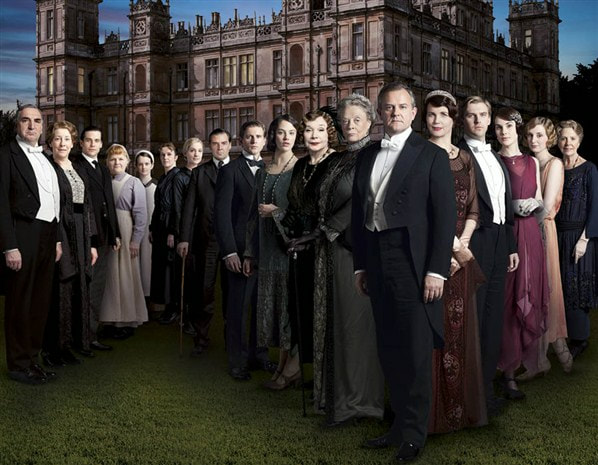
 RSS Feed
RSS Feed
